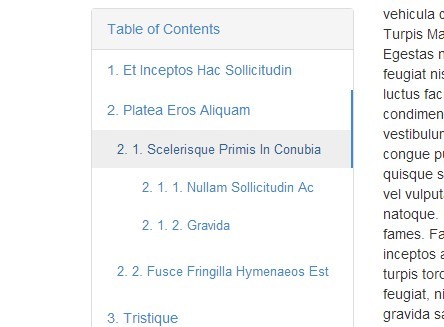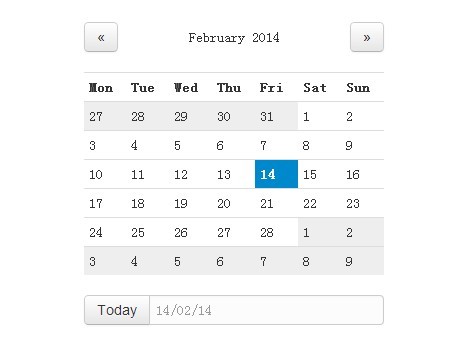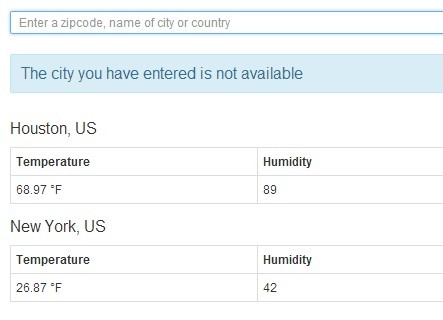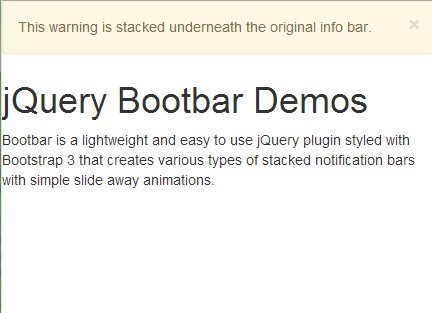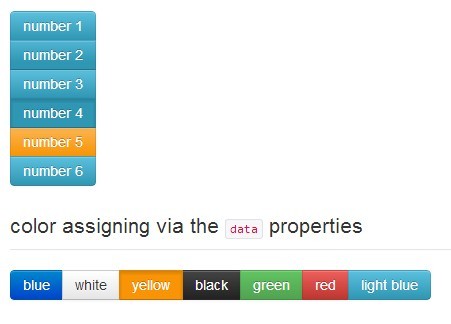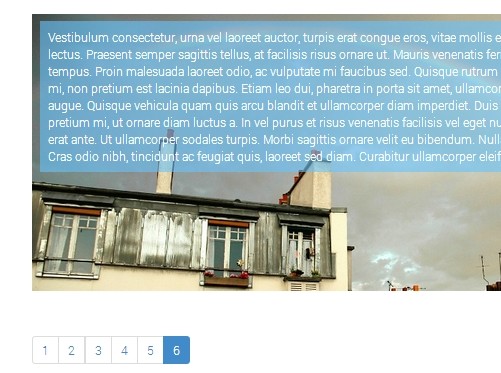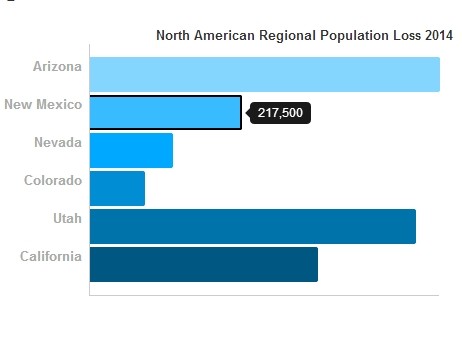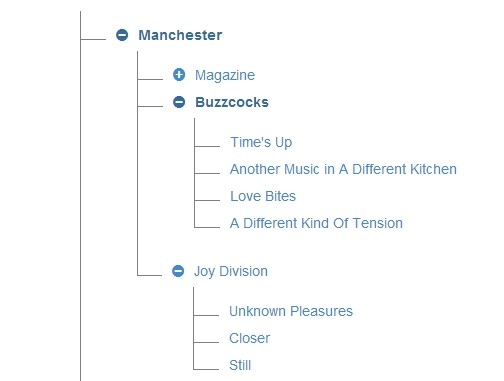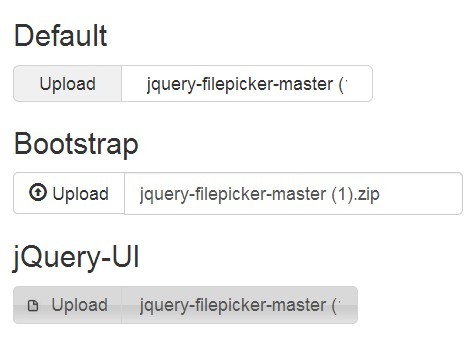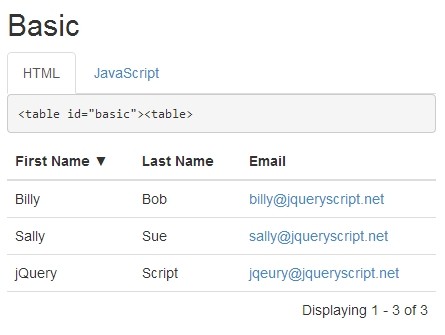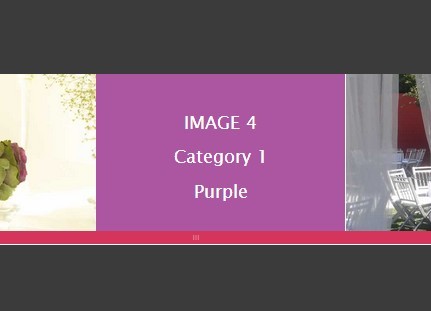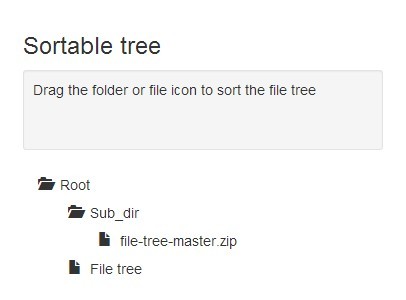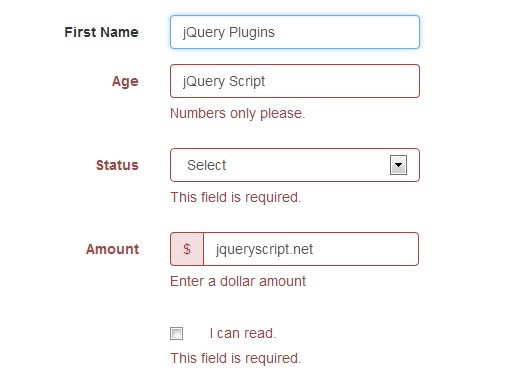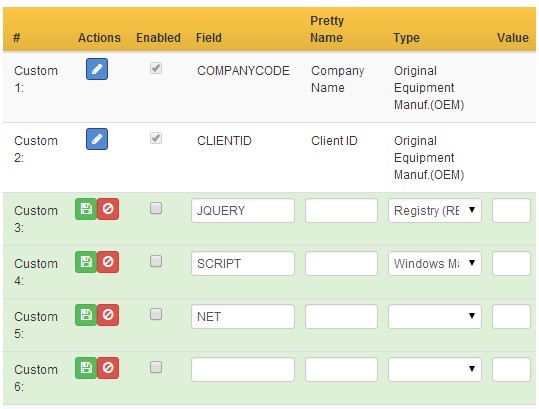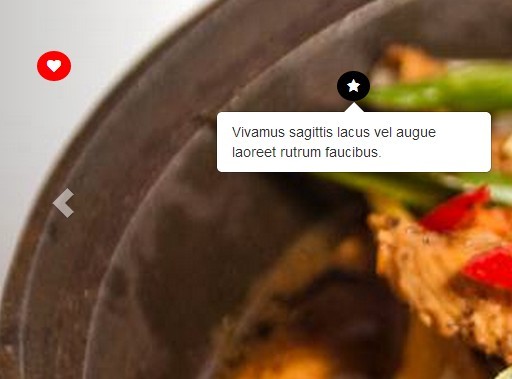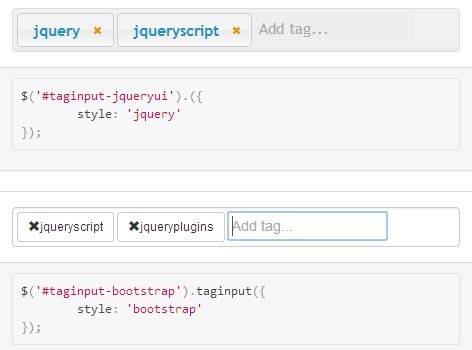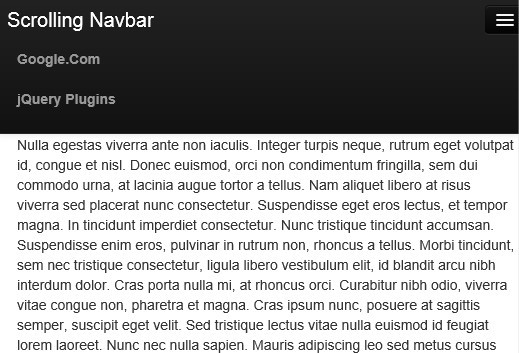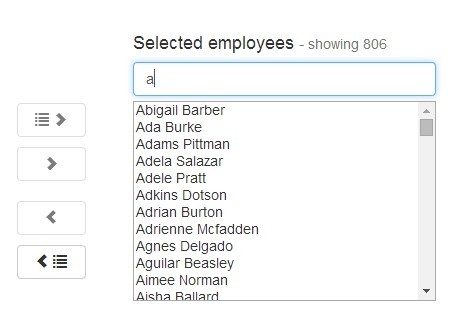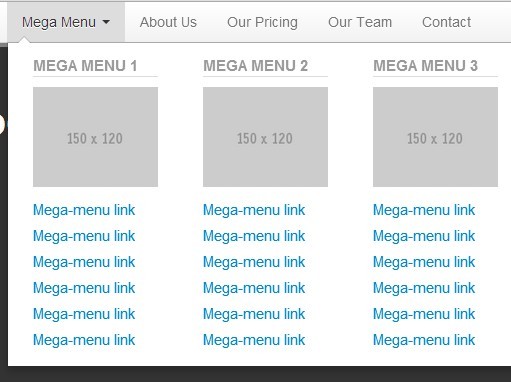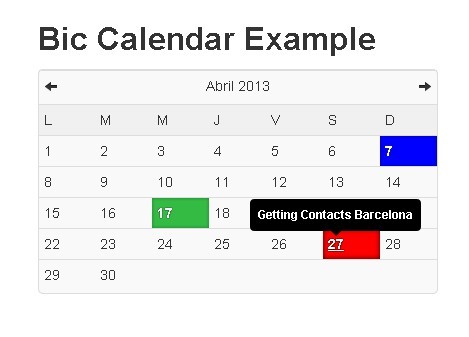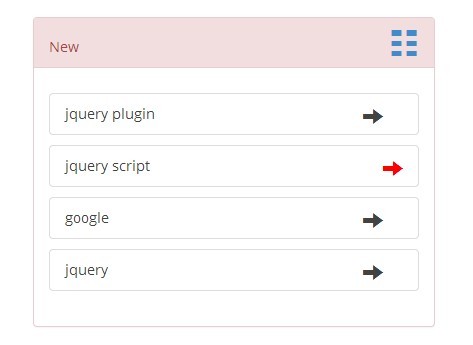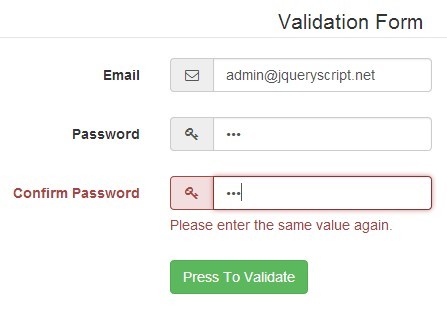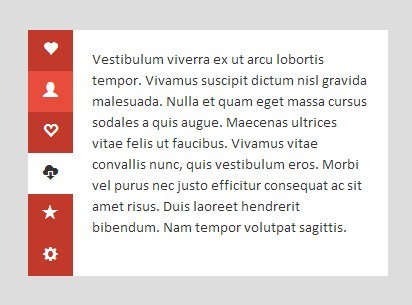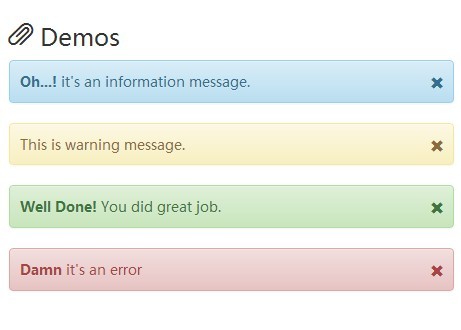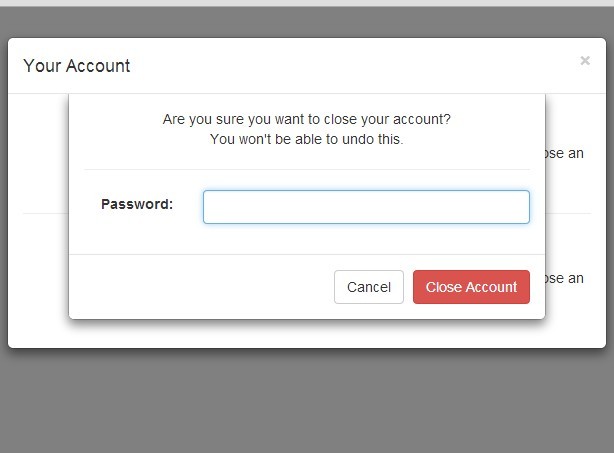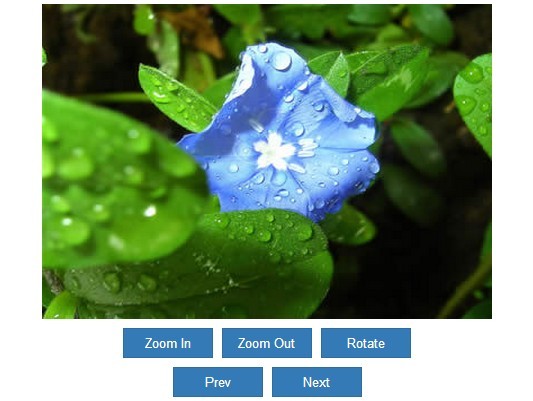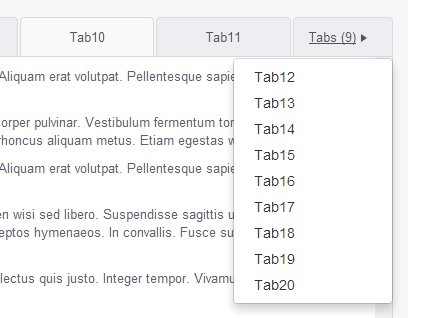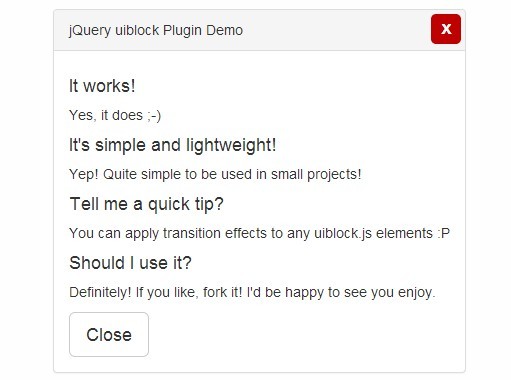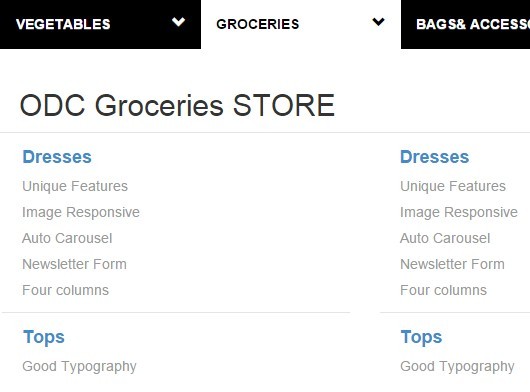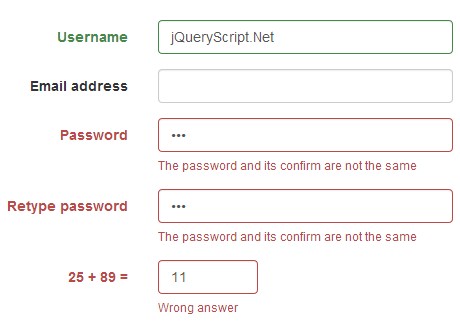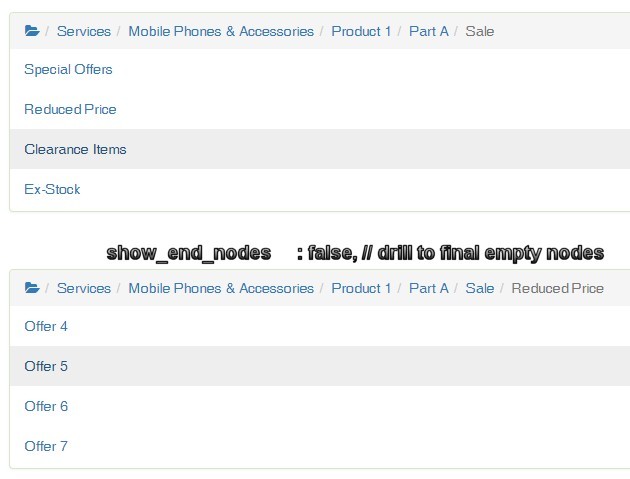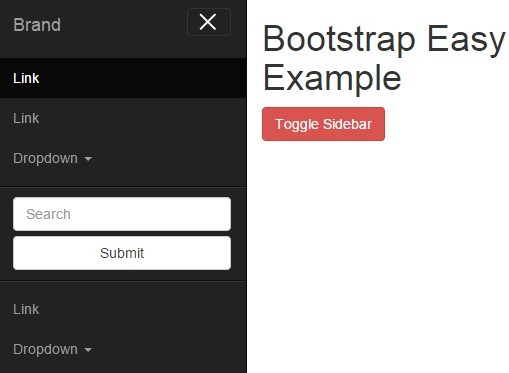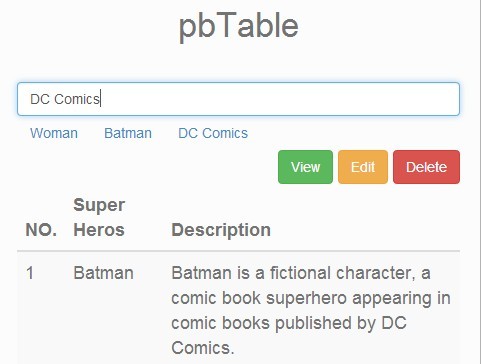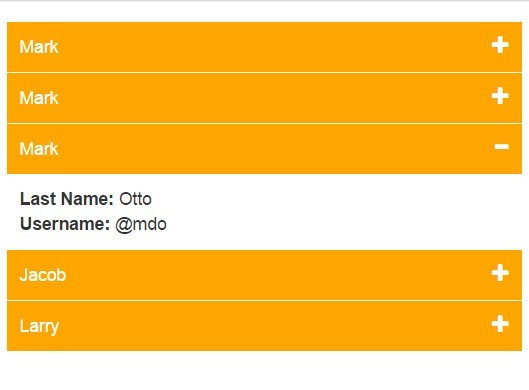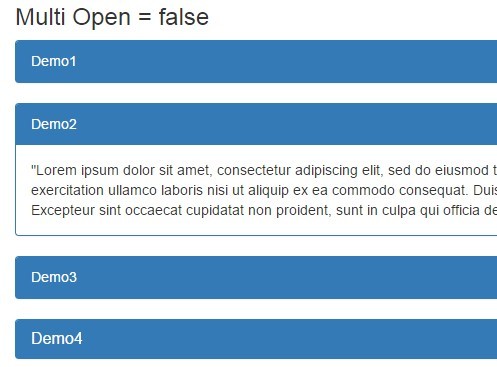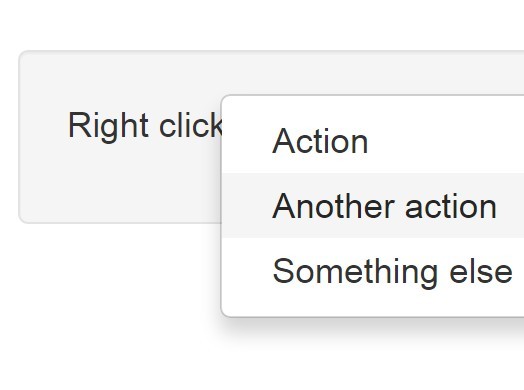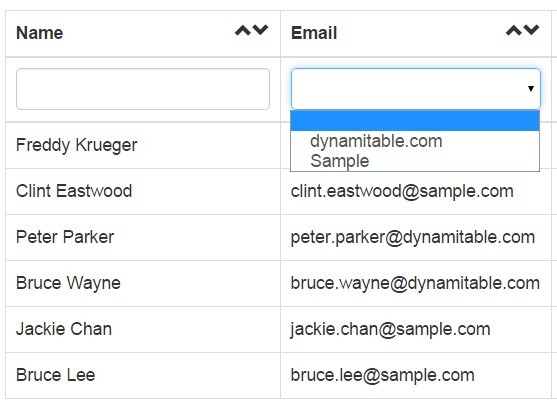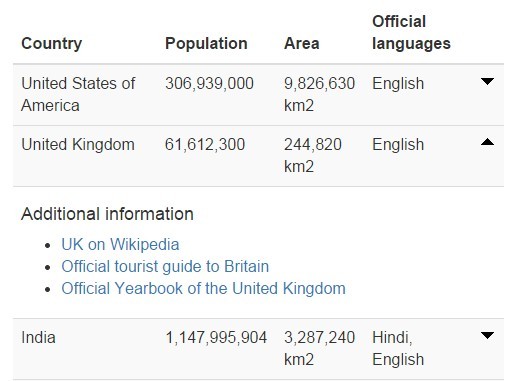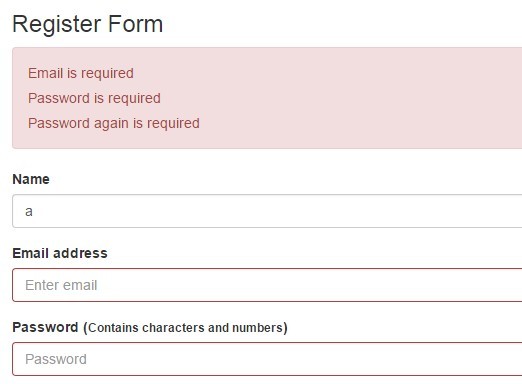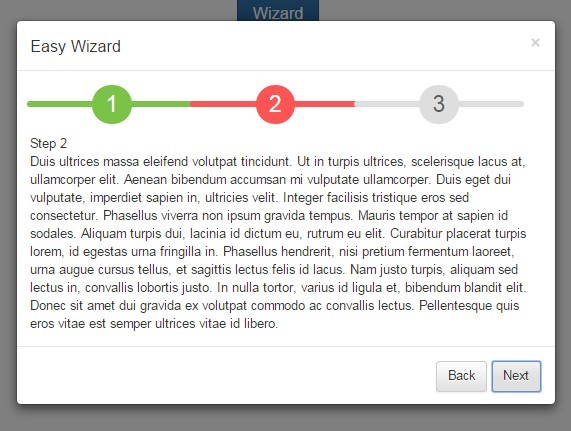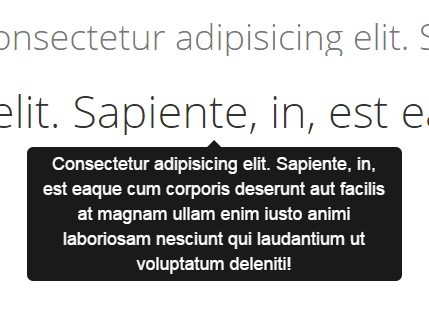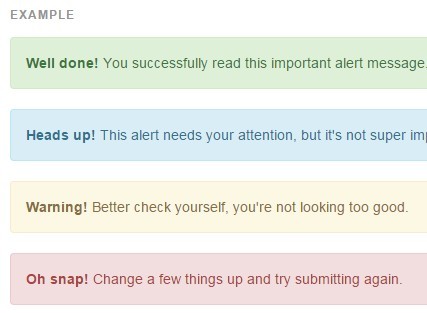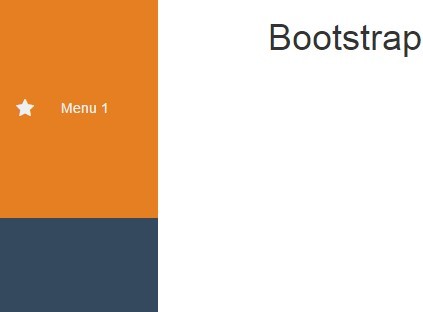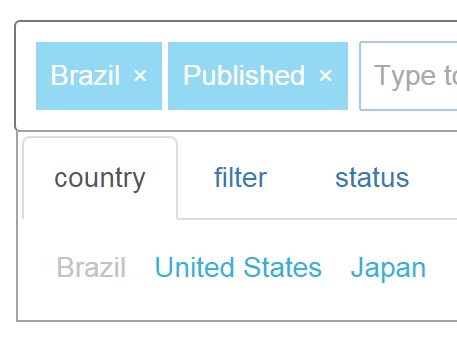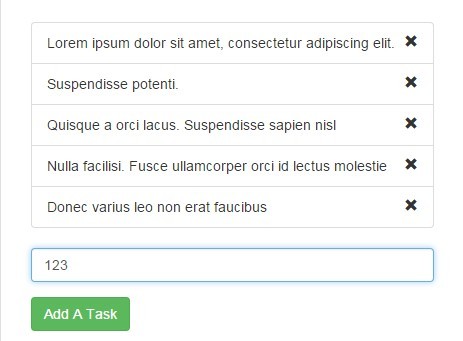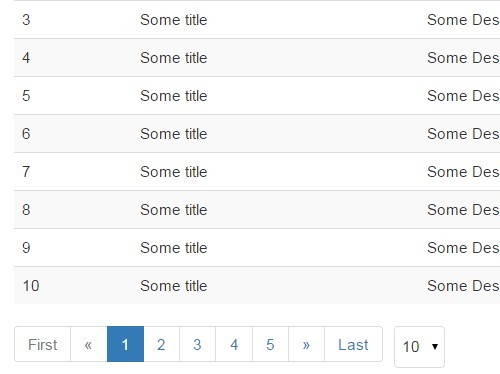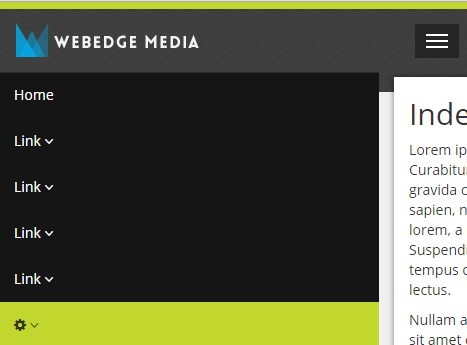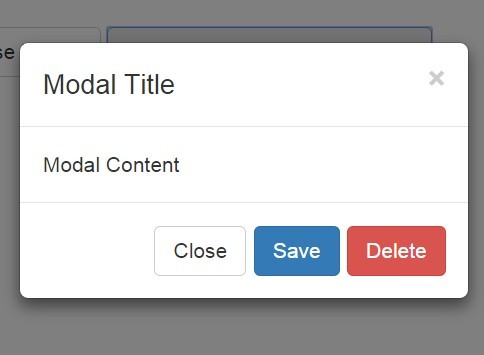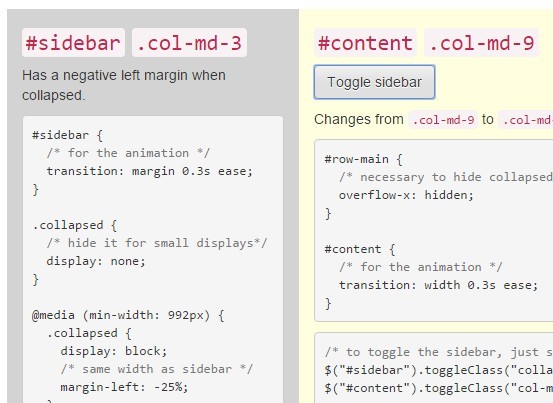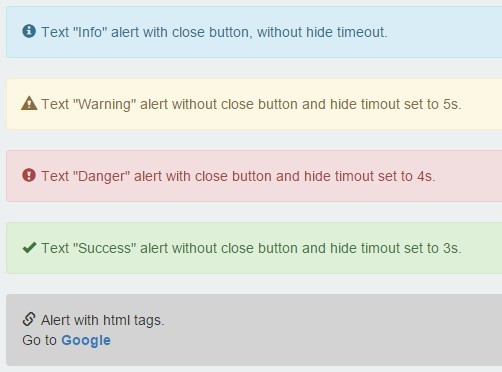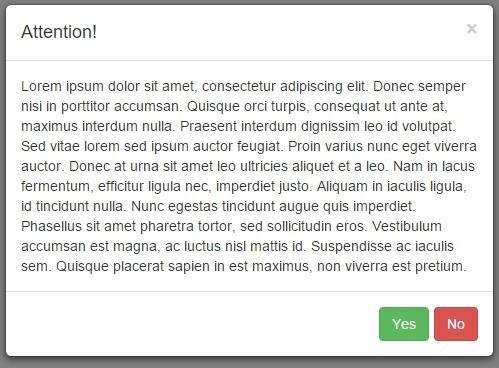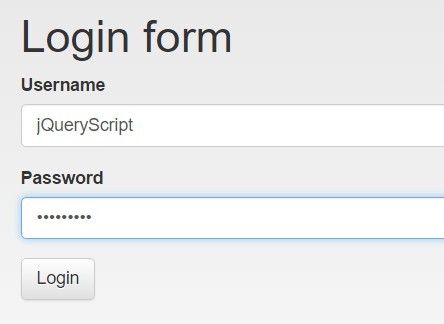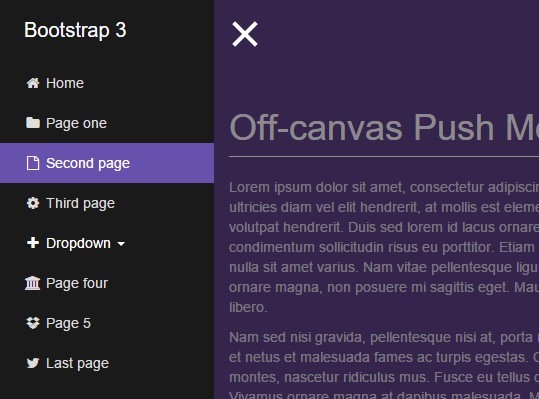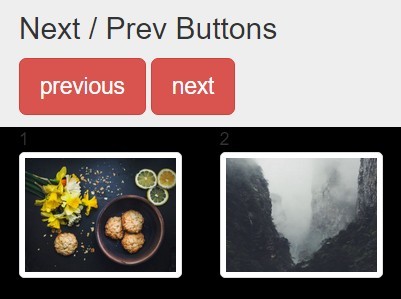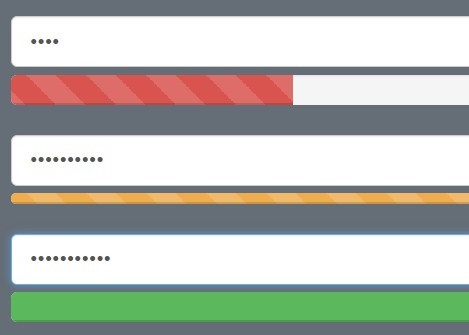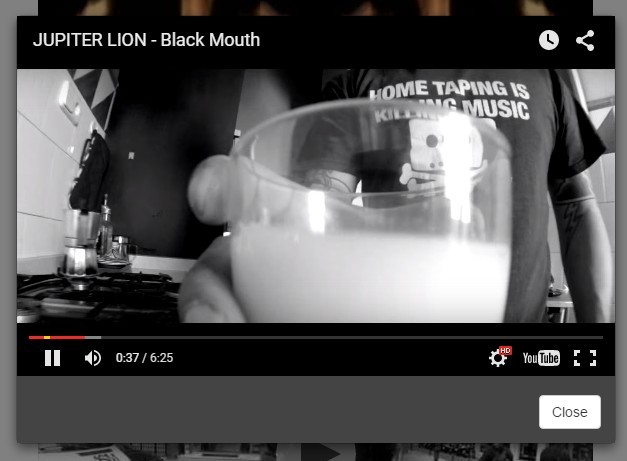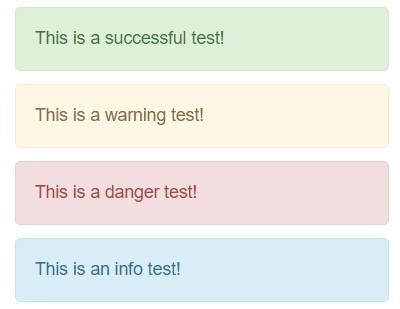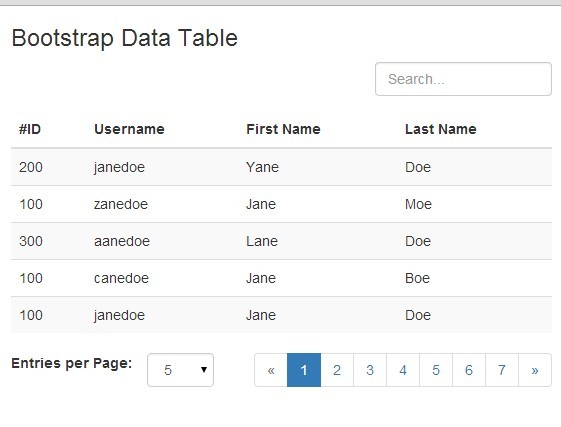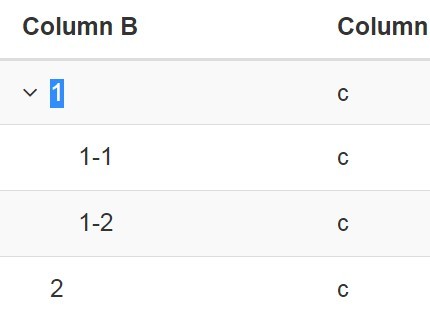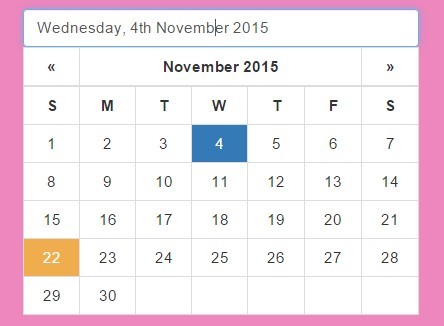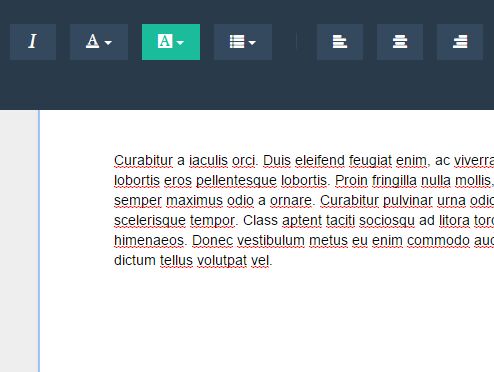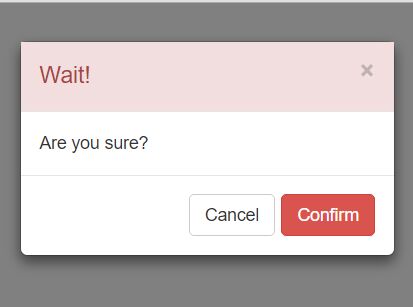TocJS
TocJS is a jQuery plugin for generating table of contents based on headings.
Demo
Features
- Allow to define different format for each heading level
- Generate anchor link for heading
- Automatically scroll to with the help of Bootstrap ScrollSpy plugin
- The table of contents are generated using nested
ulelements - Easy to customize look and feel
Download
You can download TocJS from the Github repository directly or use bower:
$ bower install tocjsUsage
By default, TocJS generates a table of contents based on the headings (h1 to h6) found on page.
In order to use this plugin:
- Insert
toc.jsto your page, ensure that it is placed after jQuery:
<script type="text/javascript" src="path/to/jquery-1.10.2.min.js"></script> <script type="text/javascript" src="path/to/toc.js"></script>- Call the plugin when the document is ready:
<script type="text/javascript"> $(document).ready(function() { $('element selector').toc(); }); </script>The plugin provides the following options:
selector(default value is h1, h2, h3, h4, h5, h6): Indicates which elements will be found and included in the table of contentselementClass(toc): The CSS class which will be added to root elementrootUlClass(toc-ul-root): The CSS class which will be added to the root generatedulelementulClass(toc-ul): The CSS class which will be added to all generatedulelements (including the root and sub ones)prefixLinkClass(toc-link-): This option will be added as a prefix to CSS class of all generatedaelements. The suffix is level of associating heading (1 to 6)heading(null): The Table of Contents heading label placed at the top. This heading is not shown by default.indexingFormats({}): Define the indexing formats for each heading level
$(element).toc({ indexingFormats: { <headingLevel>: '<formatter>' } });<headingLevel> can be 'h1', 'h2', ..., 'h6'
<formatter> is a string and can be:
| Value | Description |
|---|---|
number or 1 | The headings will be prefixed with number (1, 2, 3, ...) |
upperAlphabet, A | Prefix headings with uppercase alphabetical characters (A, B, C, ...) |
lowerAlphabet, a | Prefix headings with lowercase alphabetical characters (a, b, c, ...) |
upperRoman, I | Prefix headings with uppercase Roman numerals (I, II, III, ...) |
lowerRoman, i | Prefix headings with lowercase Roman numerals (i, ii, iii, ...) |
You can define different formatter for each heading level, for example:
$(element).toc({ indexingFormats: { 'h1': 'upperAlphabet', 'h2': 'number', 'h3': 'lowerAlphabet' } }); $(element).toc({ indexingFormats: { 'h1': 'A', 'h2': '1', 'h3': 'a' } }); $(element).toc({ indexingFormats: 'A1a' });If you want to set indexing formats for all levels:
$(element).toc({ // <formatter> can be 'number', 'upperAlphabet', 'lowerAlphabet', 'upperRoman', 'lowerRoman' indexingFormats: '<formatter>' });Customize the look and feel
Assume that <div id="toc"></div> is the element containing the table of contents. By default, TocJS generates the following markup:
<div id="toc" class="toc"> <ul class="toc-ul-root toc-ul"> <li class="toc-heading"><a href="#">Table of Contents</a></li> <li><a href="#" class="toc-link-1">h1 heading</a></li> <li> <a href="#" class="toc-link-1">h1 heading</a> <ul class="toc-ul"> <li><a href="#" class="toc-link-2">h2 heading</a></li> ... </ul> </li> </ul> </div>To customize the styles of table of contents, you can customize the toc, toc-ul-root, toc-ul, toc-heading, and toc-link-[1..6] classes. Or create your own CSS classes and set them using the TocJS options which are described in the above section.
Build
TocJS uses grunt for building process. The process includes the following steps:
- Copy entire
src/cssandsrc/jsdirectories todistdirectory - Compress the CSS files in
src/cssand save todist/css - Compress the
src/js/toc.jsand save todist/js/toc.min.js
Grunt helps us simplify the process.
First, you have to install the dependencies defined in package.json (the following commands might need the administrator permission to run):
$ cd <TocJs_Directory> $ npm install grunt --save-dev $ npm install grunt-contrib-copy --save-dev $ npm install grunt-contrib-cssmin --save-dev $ npm install grunt-contrib-uglify --save-dev Then, run the command below from the TocJS directory:
$ grunt Author
Nguyen Huu Phuoc, aka @nghuuphuoc
License
The MIT License (MIT) Copyright (c) 2013 - 2014 Nguyen Huu Phuoc Permission is hereby granted, free of charge, to any person obtaining a copy of this software and associated documentation files (the "Software"), to deal in the Software without restriction, including without limitation the rights to use, copy, modify, merge, publish, distribute, sublicense, and/or sell copies of the Software, and to permit persons to whom the Software is furnished to do so, subject to the following conditions: The above copyright notice and this permission notice shall be included in all copies or substantial portions of the Software. THE SOFTWARE IS PROVIDED "AS IS", WITHOUT WARRANTY OF ANY KIND, EXPRESS OR IMPLIED, INCLUDING BUT NOT LIMITED TO THE WARRANTIES OF MERCHANTABILITY, FITNESS FOR A PARTICULAR PURPOSE AND NONINFRINGEMENT. IN NO EVENT SHALL THE AUTHORS OR COPYRIGHT HOLDERS BE LIABLE FOR ANY CLAIM, DAMAGES OR OTHER LIABILITY, WHETHER IN AN ACTION OF CONTRACT, TORT OR OTHERWISE, ARISING FROM, OUT OF OR IN CONNECTION WITH THE SOFTWARE OR THE USE OR OTHER DEALINGS IN THE SOFTWARE. 